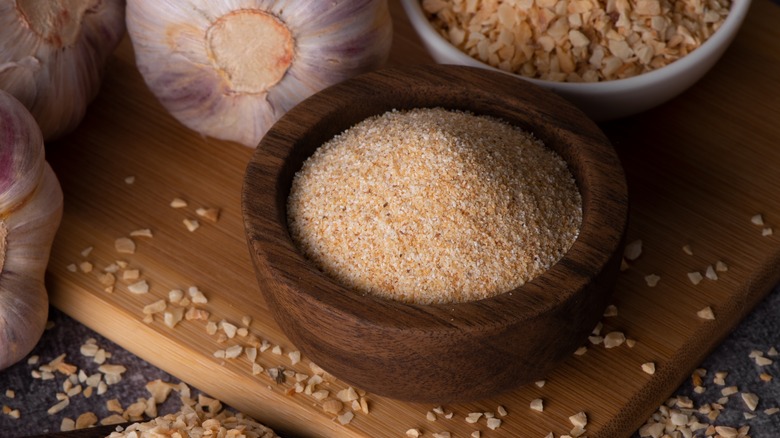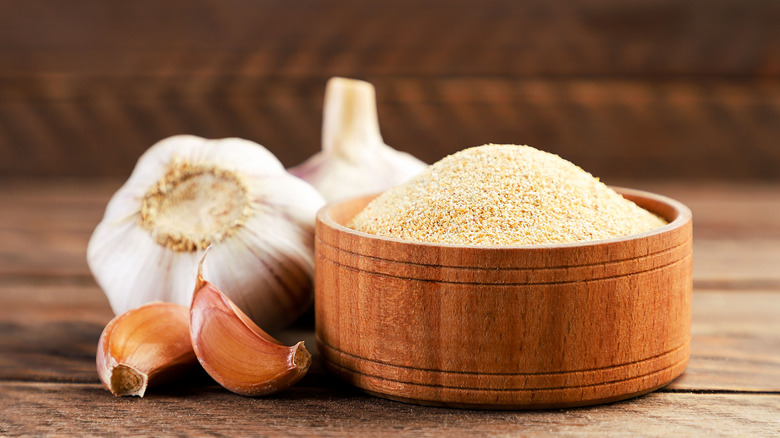The Difference Between Garlic Powder And Granulated Garlic
Garlic powder is often frowned upon; in fact, many famous chefs (including the late Anthony Bourdain) see it as a watered-down alternative to its fresh counterpart, per Slate. They swear that fresh garlic carries more flavor, that it sweetens the longer it is cooked, and, in short, that there is no competition between fresh garlic and its dried, packaged form. But Chef Rob Connoley shows evidence of the contrary: Garlic powder and granulated garlic bring a concentrated garlic flavor to your dish that you can't get from just a few cloves of fresh garlic. These, albeit cheaper, forms of garlic give a more pronounced pungency that enhances your dry rubs and any other dish that requires a more garlic-forward taste.
So instead of dismissing these two types of dried garlic as bland, you should actually consider using them over fresh garlic when you want a stronger garlic flavor. But you may now be wondering if there is a difference between these two powdered versions of garlic. Well, despite how similar they seem right off the bat, both are unique ingredients that have their own place in the kitchen.
Garlic powder and granulated garlic have different granule sizes
Think of the subtle difference between flaky salt and table salt. Similarly, both garlic powder and granulated garlic are made of the same thing (garlic), and both are used as seasonings. However, they have different-sized granules, per WebstaurantStore. Garlic powder has finer granules and is thus categorized as a powder. Granulated garlic has slightly larger granules like sand, meaning that the dried garlic was less pulverized. While the size difference is quite subtle, it makes way for a difference in the strength of garlic flavor, as well as the shelf life of the two.
Earlier, we noted that garlic powder and granulated garlic have a more pronounced garlic flavor than actual garlic cloves do. This is due to the amount of surface area of the garlic that is exposed to oxygen: The smaller the granules, the greater the surface area, which means more garlic flavor. Thus, it is right to assume that garlic powder has much more garlic flavor than granulated garlic (via WebstaurantStore). You need about twice as much granulated garlic as garlic powder to achieve the same amount of flavor. But both have their own uses: If you want your garlic to melt away in your pasta sauce, you would choose garlic powder, but if you prefer the crunchy texture of garlic on your chicken, then choose granulated. Notably, The Washington Post shares that garlic powder's greater surface area makes it the more perishable ingredient compared to granulated garlic.
So don't knock on these garlic alternatives. And if you want to elevate your garlic powder's flavor, try this hack and mix it with water first.

